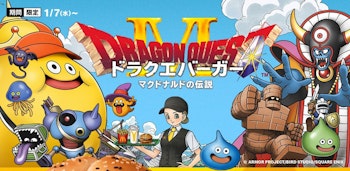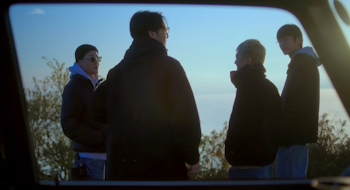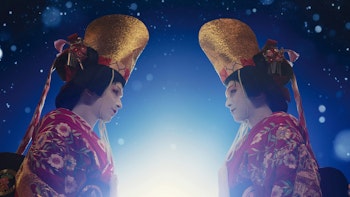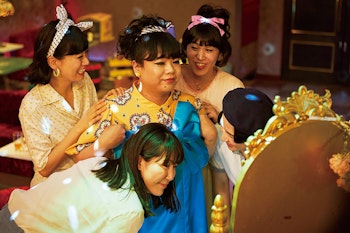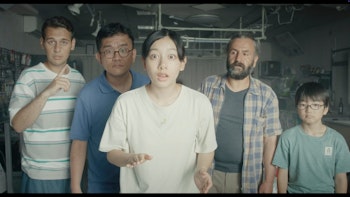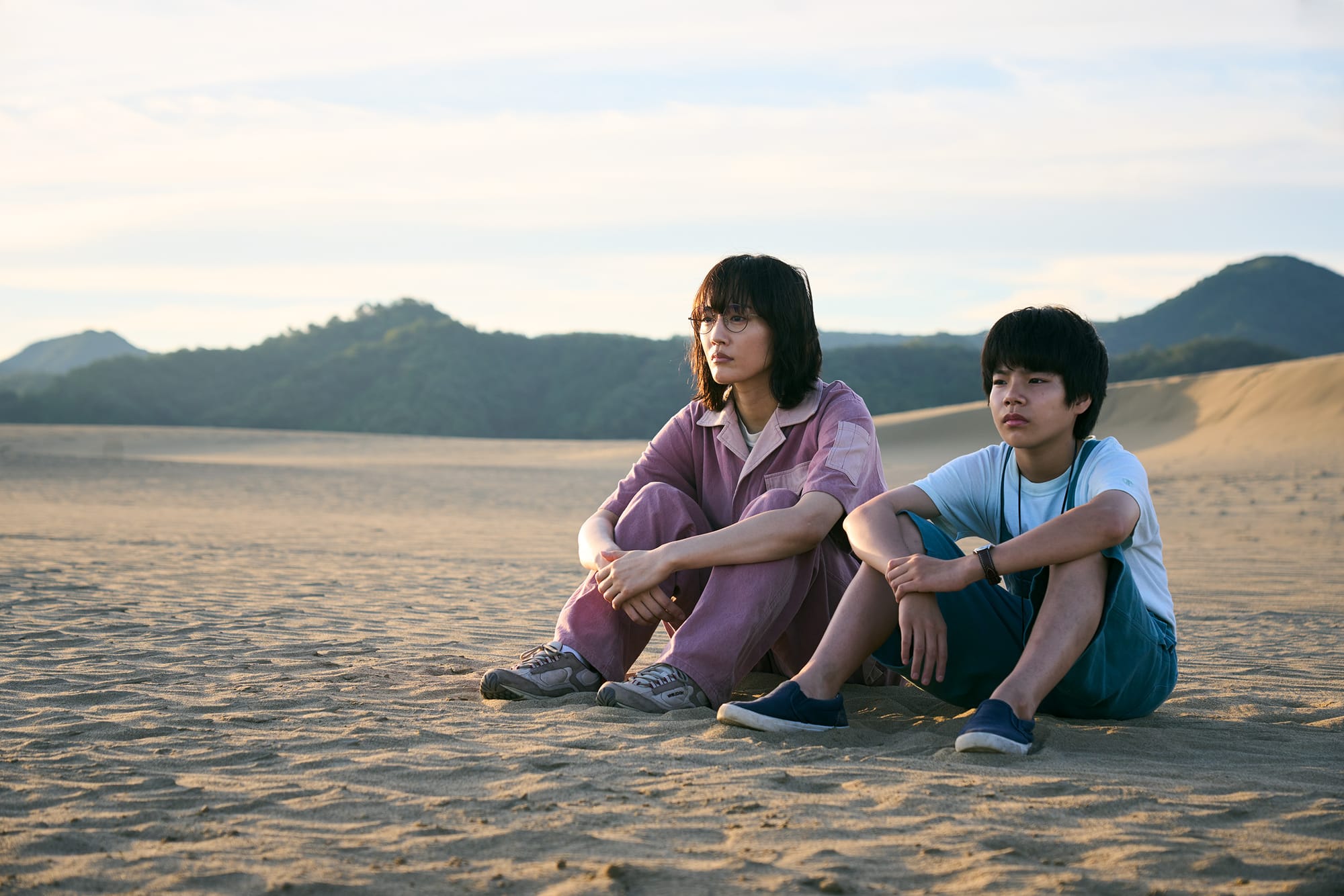
Route 29 is a roughly-120km road from Himeji to Tottori, as well as the name and primary transcendent setting for Yusuke Morii’s second feature after his spectacular 2022 debut, Amiko. Perhaps proof of the confidence distributors and his peers have for his work and future, this early-career feature received a world premiere in the Gala Selection of the recent 37th Tokyo International Film Festival ahead of its release last week, and it was reciprocated with a dark, reflective, whimsical tale that somehow floats between these disparate moods to profound, effortless effect.
The film reunites the director with the impressive child actor Ichina Osawa as Haru, who led his debut film, delivering similarly-impressive results in a challenging role as a rough-yet-considered runaway 12-year-old girl, with trauma bubbling for both characters behind its eccentric layers. It’s a road trip motivated by the undercurrent of uncertain futures that drives this film: Noriko (Haruka Ayase) is a solitary figure floating through work as a cleaner when they’re diagnosed with a brain tumor. On the same day while working as a cleaner at a psychiatric hospital, a patient who feels death is near asks her to bring Haru to her before she dies.
Naturally, this means stealing the company van and taking the three-hour drive along the eponymous Route 29 to Himeji in order to bring the child back.
It’s not that simple, even before stealing a car made her a criminal for even following such an unusual request. Still, she eventually finds Haru, running into her on skates before running off and hanging with a homeless guy in the woods known only as Master Shake. So, after explaining why she’s here, they begin their seemingly-simple journey home.
Except the car is soon stolen by a woman with a pair of old labradors that convinces them to go searching at night for her missing third pet before taking their car and leaving them in the dark, forcing them to make the journey on foot. The unusual woman, and indeed all the people the pair meet on this adventure as well as the very square, wide and unusual framing of these vignettes of life on their journey on foot, evoke the likes of Wes Anderson and Nobuhiko Obayashi, and this is no accident.
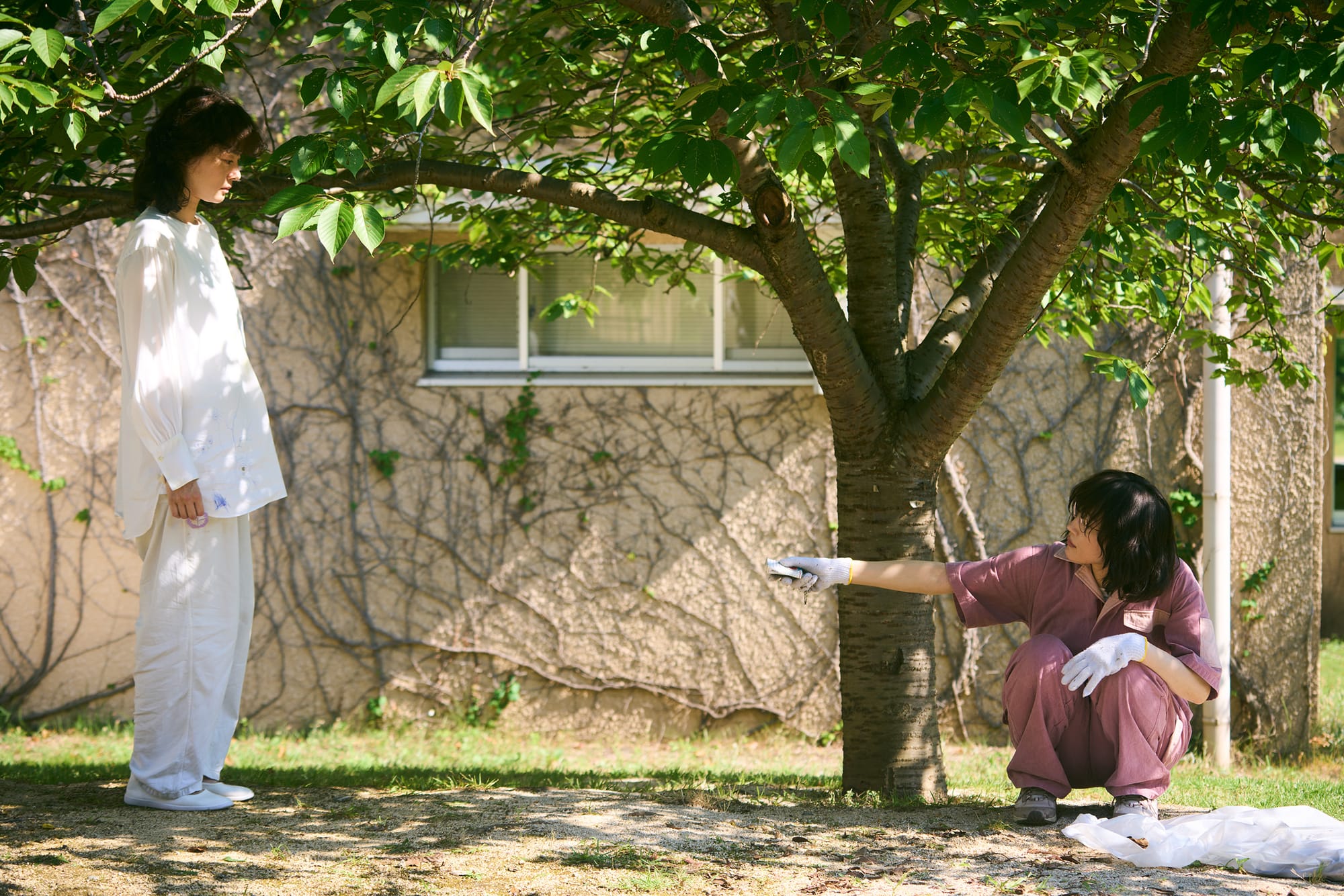
The film is based on a poetry collection from Taichi Nakao named Route 29 Liberations, and it’s this siloed storytelling that, like poetry, dances on the screen as we fly between reality and surrealist fantasy for the remainder of the journey on foot. Giant fish swim along the road, and an eclectic cast of people on land and water are met with no clear sign of what is real and imagined.
Does it really matter if any of this is real, though? When the pair run into the old man (solely named as the old man in script and even in the credits) after finding him sat inside his overturned car, with a non-reactive silent face like death, who cares if he’s real or not? They take his barely-reactive, silent body and he walks rigid alongside them distracted in almost ethereal existence, before bursting into life to exclaim a desire to ride in a canoe. Once on the water, he paddles away with a distant weddng party in canoes of their own, sailing to the distance and making a journey beyond them to whatever comes next
Would the old man being real make a difference? That loss of a companion, no matter how brief, is worth mourning nonetheless. Because to mourn mean he existed. It’s what we make of our experiences, real or imagined, that allows us to make the next step. It’s important no matter what.
This vignetted storytelling has the risk of running abound to shallowness or a lack of cohesion. Yet whereas in his debut film Amiko this surreality gave us a childlike perspective that attempted to parse how difficult it is to understand and process grief from such a young age, this surreality is instead turned back onto us with magical effect.
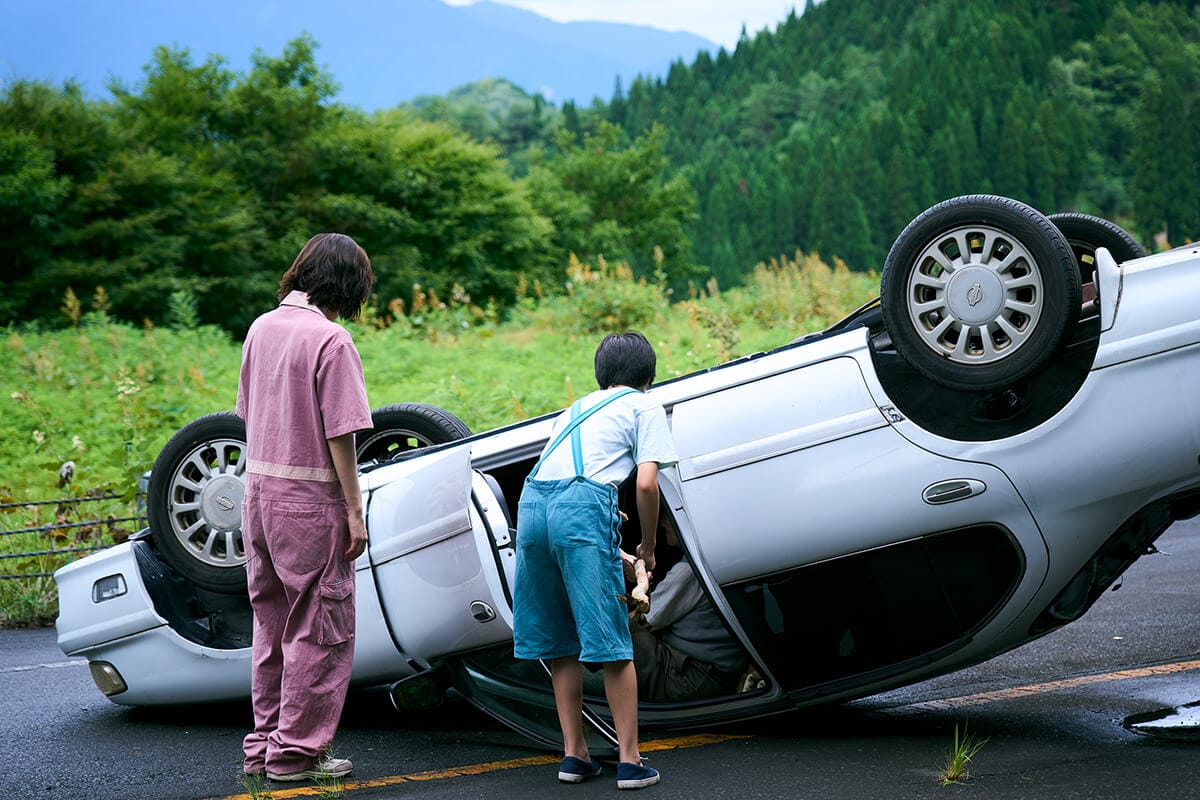
Without names for the old man, or the father and son the pair also meet who sought an escape from society that represent the anxiety of a normal life and the freedom we have to chart our own path even if we doubt that choice, or anyone we meet on our journey, these characters are simultaneously unburdened from the shackles of their world and canvasses of imagination for us to imagine their stories like toy figures in a play set. Just as we don’t know if any of these events or characters or real, we can fantasize our own understandings of their existence as we see fit, placing them into our own conceptions of the world free from director interference without impacting the heart of the film itself.
Amidst it all there is a thread of general dismay at the structures that force them to play by convention, which perhaps comes out in the director’s cinematic style. The man lifts his father from school and brings them into the woods in a weariness over how capitalist society has ground him down to isolation, with the risk of being forgotten even by those close to him. Haru’s decision to search for the child comes from a general feeling that stealing the car and fulfilling the request is worthwhile enough. With a tumor in the brain, what else is there to lose?
Suddenly the whimsical side story-esque structure doesn’t feel quite so aimless, especially as they approach their destination and even the sky and the passage of time itself feel like they get sucked into this imaginative blur between fiction and reality. It’s awkward yet uniform, quirky and surreal yet undeniably more real and human than anything more grounded could ever hope to be.
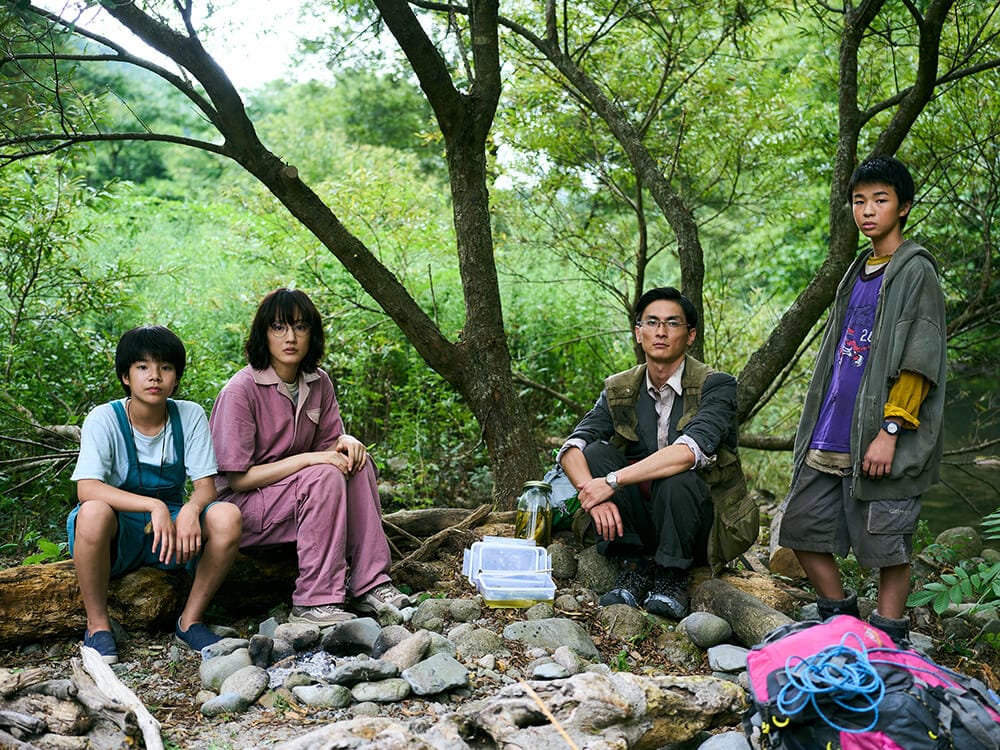
Despite the concept being undeniably familiar, this is something unlike anything else you’ll find in Japanese cinema this year. It’s also undeniably aware of itself, a confidence the strong reception to the director’s debut film has clearly instilled in himself. It uses this for comedic effect that stops the film feeling too lost or uncertain, from the exclamations of its characters, the sudden cuts for comedic effect - one particularly strong example of this comes early in the film when the co-workers learn the company van is stolen with a hard cut to them stood in front of the empty parking space.
Yet it just as often knows when to let a scene linger just that moment longer to let the crushing emotional weight the pair have pushed away hit in its closing moments.
This is a film that firmly establishes Yusuke Morii as one of the most promising up-and-comers in Japanese cinema, with the endorsement of the country’s biggest festival a deserved celebration for a creative on the rise. You feel every moment of the 120km journey of Route 29 not just because the director himself traveled the road himself during production and instilled that experience into the film, but because each moment is building towards a purpose filled with heart and pain that's no less worth reaching its final destination, no matter how disconnected from reality it may appear to be along the way.
Just look out for the giant fish.
Japanese Movie Spotlight is a monthly column highlighting new Japanese cinema releases. You can check out the full archive of the column over on Letterboxd.
